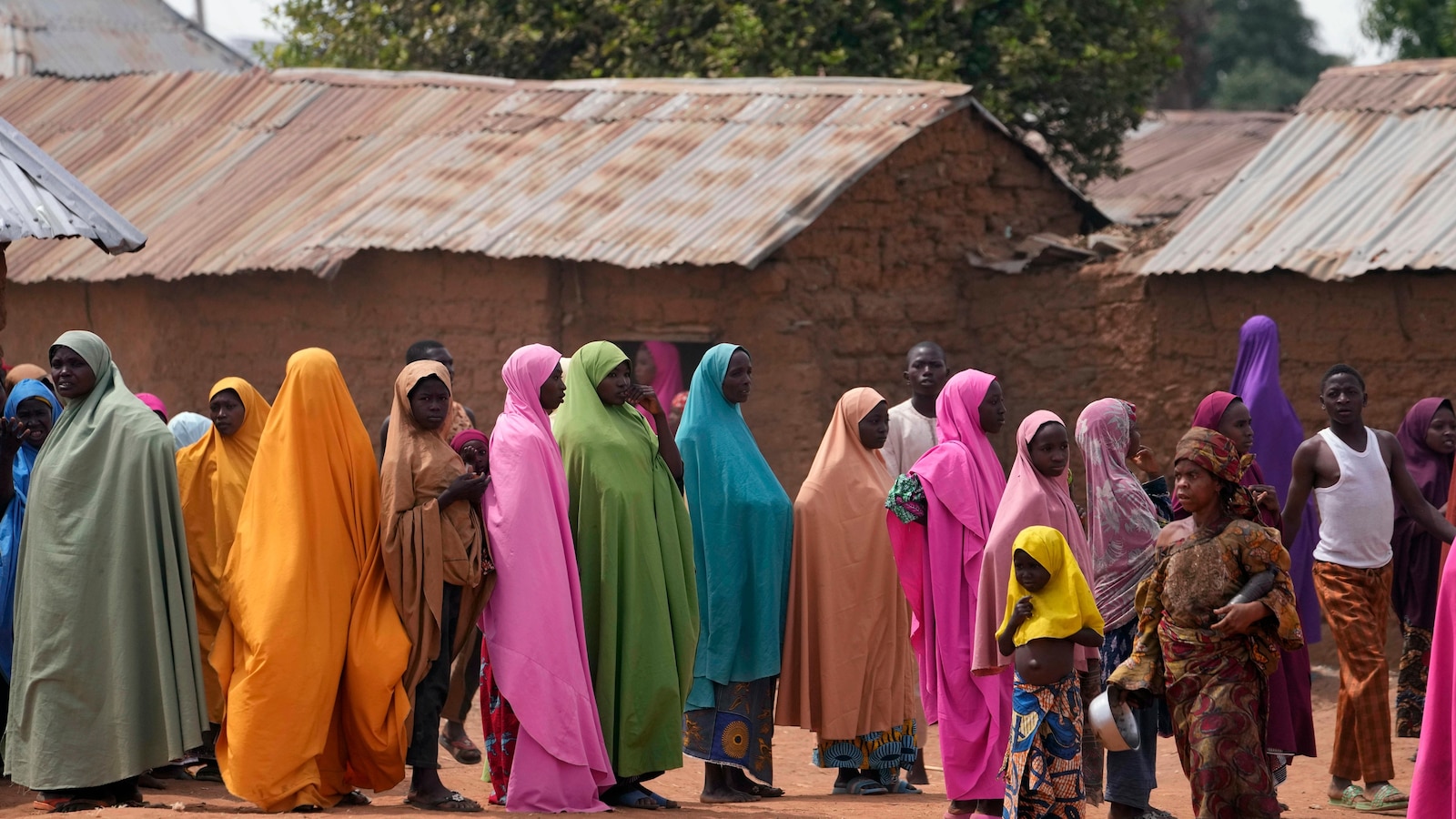
ABUJA, Nigeria — Nearly 300 kidnapped Nigerian schoolchildren have been released, local officials said Sunday, more than two weeks after the children were seized from their school in the northwestern state of Kaduna and marched into the forests.
At least 1,400 students have been kidnapped from Nigerian schools since 2014, when Boko Haram militants kidnapped hundreds of schoolgirls from Borno state’s Chibok village in 2014. In recent years, abductions have been concentrated in the country’s northwestern and central regions, where dozens of armed groups often target villagers and travelers for ransom.
Kaduna state Gov. Uba Sani did not give details of the release of the 287 students abducted from their school in the remote town of Kuriga on March 7, at least 100 of them aged 12 or younger. In a statement, he thanked Nigerian President Bola Tinubu “particularly ensuring that the abducted school children are released unharmed.”
Tinubu had vowed to rescue the children “without paying a dime” as ransom. But ransoms are commonly paid for kidnappings, often arranged by families, and it is rare for officials in Nigeria to admit to the payments.
No group has claimed responsibility for the Kaduna kidnapping, which locals have blamed on bandit groups known for mass killings and kidnappings for ransom in the conflict-battered northern region, most of them former herders in conflict with settled communities.
At least two people with extensive knowledge of the security crisis in Nigeria’s northwest told The Associated Press that the identity of the abductors is known.
Murtala Ahmed Rufa’i, a professor of peace and conflict studies at Usmanu Danfodiyo University, and Sheikh Ahmad Gumi, a cleric who has negotiated with the bandits, said they are hiding in the region’s vast and ungoverned forests.
Arrests are rare in Nigeria’s mass kidnappings, as victims are usually released only after desperate families pay ransoms or through deals with government and security officials.
The Kaduna governor thanked Nigerian security forces and officials for the release of the students. “I spent sleepless nights with the National Security Adviser, Mal. Nuhu Ribadu … fine-tuning strategies and coordinating the operations of the security agencies, which eventually resulted in this successful outcome,” he said.
Over 200 schoolchildren who were abducted in northwest Nigeria have been released after more than two weeks in captivity. The children, who were taken from their school in the town of Tegina in Niger state on May 30th, were finally set free by their captors on June 17th.
The abduction of the schoolchildren sparked outrage and condemnation both within Nigeria and internationally. The incident was just the latest in a series of mass kidnappings targeting schools in the country, with criminal gangs seeking ransom payments in exchange for the release of the children.
The children were taken from the Salihu Tanko Islamic school in Tegina by gunmen who stormed the premises and herded them onto motorcycles before fleeing into the surrounding forest. The kidnappers demanded a ransom of 110 million naira (about $270,000) for the release of the children, but it is unclear whether any payment was made.
The release of the schoolchildren was confirmed by a government official in Niger state, who stated that they had been handed over to security officials and were undergoing medical checks before being reunited with their families. The exact circumstances of their release are not yet clear, but it is believed that pressure from security forces may have played a role.
The abduction of schoolchildren has become a major security challenge in Nigeria, with criminal gangs taking advantage of the country’s porous borders and weak law enforcement to carry out kidnappings for ransom. The government has been criticized for its handling of the crisis, with many accusing it of not doing enough to protect its citizens.
The release of the schoolchildren is a welcome development, but it is just one small victory in a much larger battle against insecurity in Nigeria. The government must take decisive action to address the root causes of kidnapping and other forms of criminality in the country, and ensure that all Nigerians can live in safety and security. Only then can incidents like the abduction of the schoolchildren in Tegina be prevented from happening again in the future.


